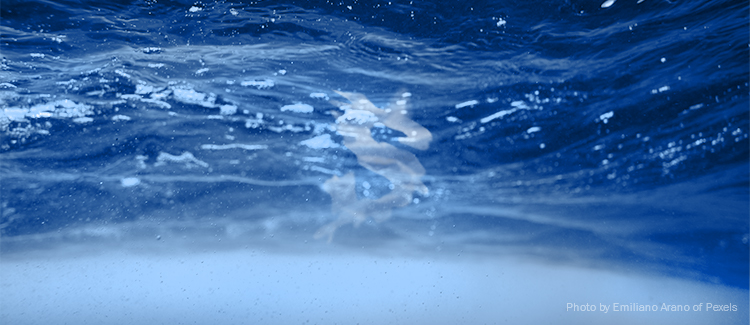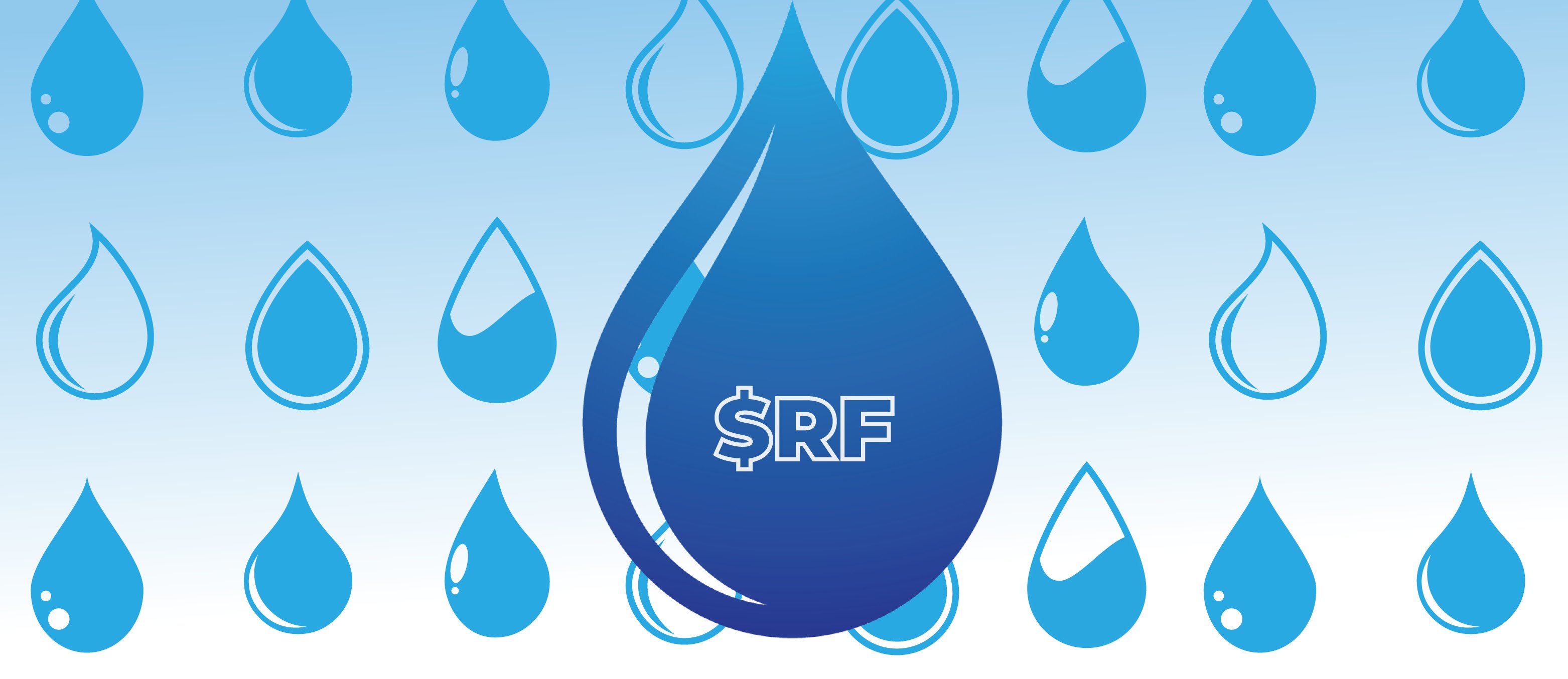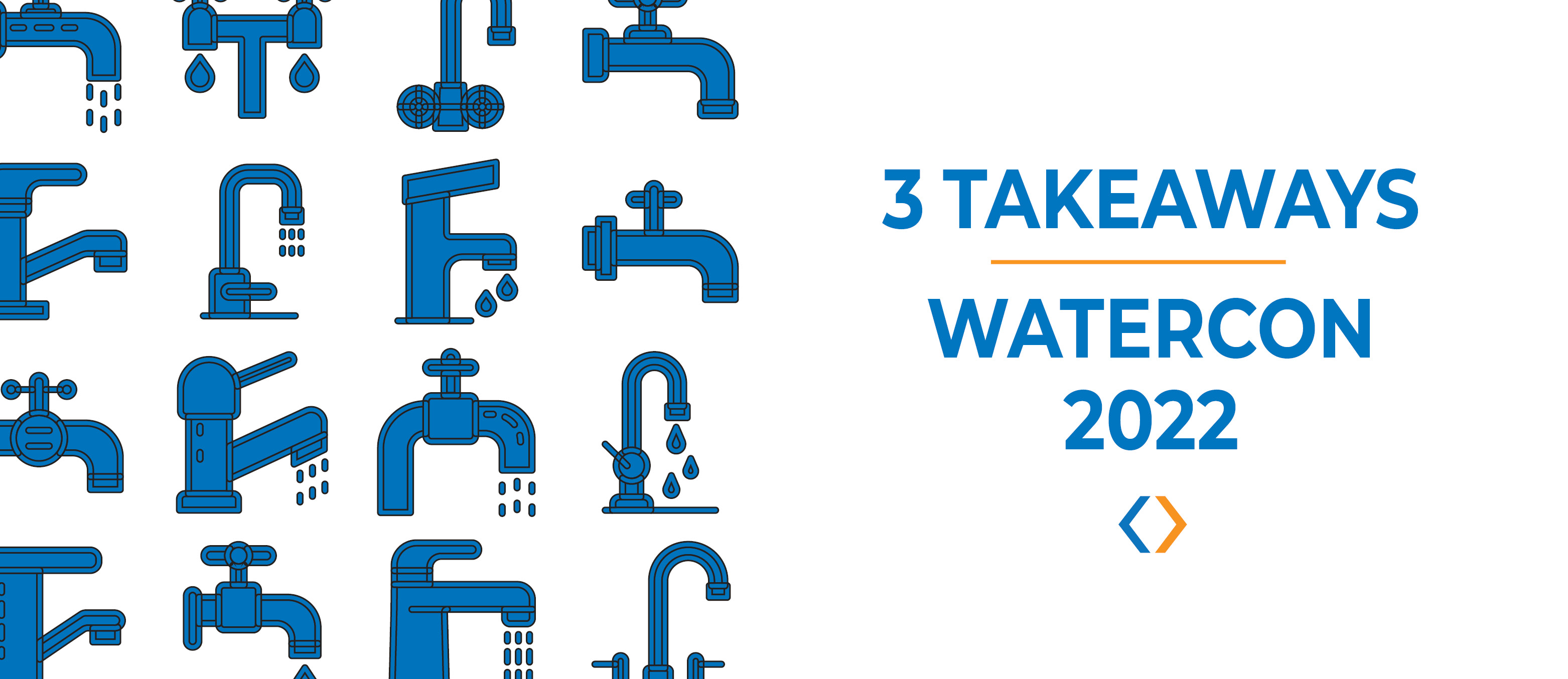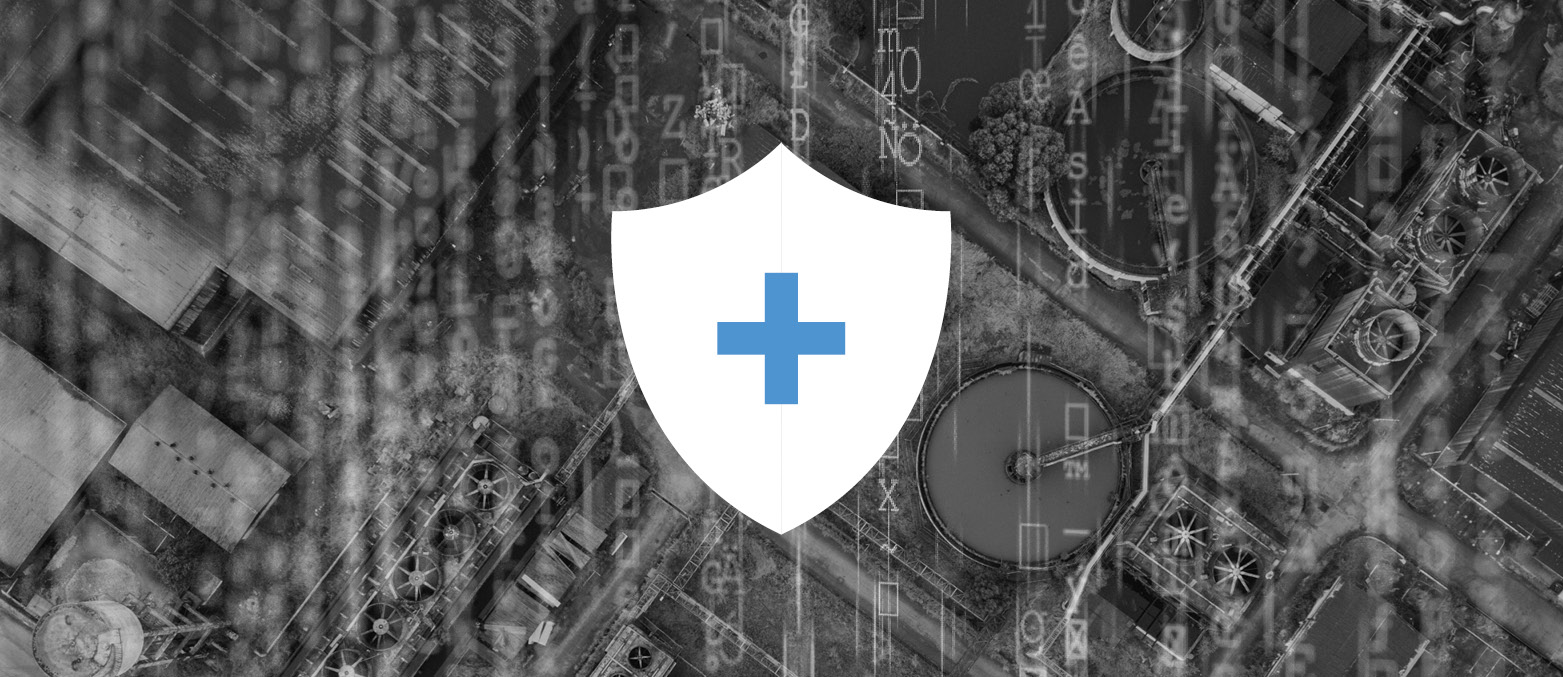Did you miss Part 1? If so, you can check that out here. In the second part of our two-part series, we explore what utilities should consider when determining the viability of regionalization and the regionalization structures available to municipalities. Let’s get to work!
Is Regionalization Right for Your Utility?
The primary factors for exploring regionalization are simply re-telling of regionalization advantages. For example, if your utility struggles with affording costly, specialized personnel, regionalization could help with financial backing to do so. Or, if your utility is overburdened financially by compliance with federal and state regulations, spreading the expense over a large customer base could be just the thing. A multitude of factors including depleted water sources, repair costs, population growth (or decrease), and natural disasters can spur small water utilities to look to their neighbors for assistance. Despite the benefits of water utility regionalization, Deputy CEO of National Rural Water Association Matt Holmes notes that any decision to consolidate must be a “top-down push,” adding that it’s “essential that communities agree that it’s for the good of the residents.”
Barriers to Regionalization
Despite its many pros, regionalization is not always the best option. Some factors that hinder the ability of utilities to consolidate include:
- Intergovernmental conflicts. Local political disputes can be an insurmountable barrier to consolidation/regionalization in that a successful partnership is the simple ability to work together. Some of the bases for these conflicts include the disclination to give up local control as well as the fear that its customers will not fare as well under the new partnership. “Many towns don’t want to lose their identity,” notes National Rural Water Association (NRWA) President Steve Fletcher. “They’ve already lost their local schools and other businesses. They don’t want to lose anything else.”
- Condition and size of existing small systems. Larger systems are often unwilling to take on the liability of a small system’s inadequate or deteriorating infrastructure. In addition, smaller systems may have such limited revenue potential that any type of regionalization is not viable.
- Substantial upfront capital costs. The regionalization process requires large upfront investment before consolidation even begins, and the necessary planning, studies, and staffing can be costly. If the regionalization strategy involves the physical consolidation of utilities, the necessary improvements would require significant grant funding to be even marginally feasible.
Regionalization Structuring
The types of consolidation plans run the gamut from shared costs to outright acquisition, including:
- Direct acquisition. When a larger utility acquires the assets, operations, and customers of another utility, absorbing them into existing frameworks
- Joint merger. When two relatively equal partners join to create a new entity controlled by the previously disparate partners
- Balanced merger. When two or more entities consolidate to establish a governing body that is at least somewhat governed by the pre-existing utilities
- Regionalization. When utilities do not combine legal entities but instead pool resources, buying power, and/or technical expertise
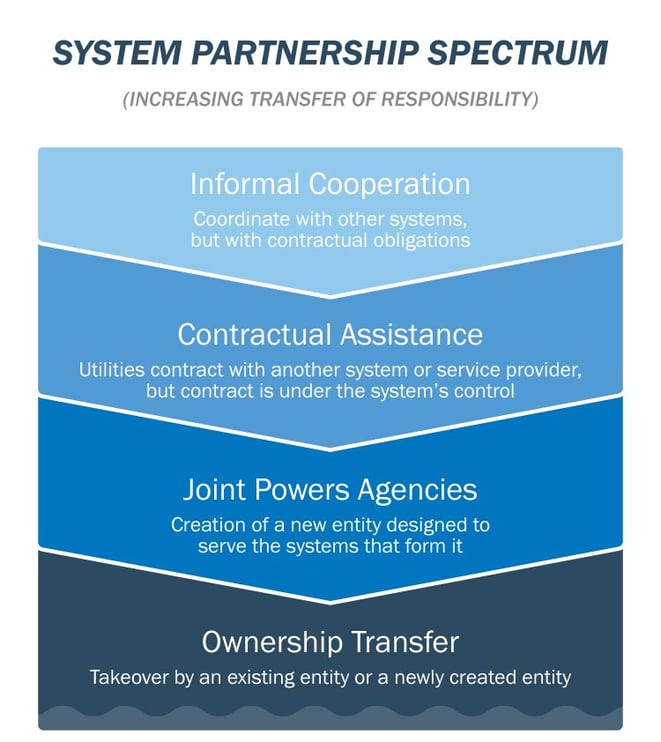
Source: System Partnership Solutions to Improve Public Health Protection, USEPA, 2002
Consolidation may also simply be a partnership to provide services, with one utility doing certain tasks such as billing or meter reading, while another performs regulatory compliance and yet another operates and maintains the distribution infrastructure. With so many structuring options, it is important for utilities to seek third-party expert help. “I encourage any water system that’s considering consolidation or partnering with another water system to engage a third party to help them navigate that decision,” says Matt Holmes, NRWA Deputy CEO. “You’re making a decision that will last for years. It behooves you to get professional advice.”
As we wrap up this short series, we’d like to share this parting thought from Gary Larimore, executive director of the Kentucky Rural Water Association:
"We should not be regionalizing simply because we think it is a good idea. There must be an obvious and overriding reason or need to consolidate. Every situation should be viewed independently, and decisions should be based on what is best for the customers. Simply merging or consolidating systems will not necessarily give you a better system. It may only give you one large, bad system."
Interested in finding out how efficiencies of scale, increased access to grants and funding, and improved water quality is possible through regionalization - without making little problems into big ones?
Please contact one of our key staff below to learn more:
Director of Business Development, Indiana/Kentucky Regional Director
Wisconsin Regional Director
Executive Vice President, Director of Engineering

